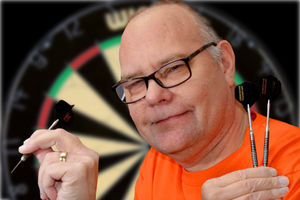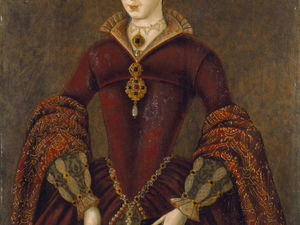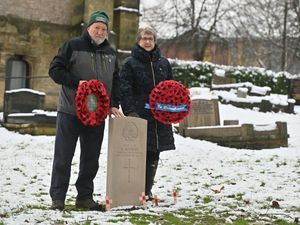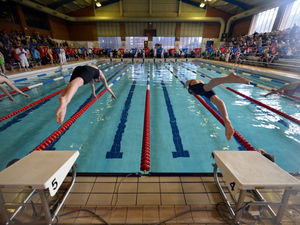Grateful Martin is on target for games gold
Darts player Martin Searle knows better than most the value of organ donation.

Born with the genetic condition Alport syndrome, he has been fortunate to receive two life-saving kidney transplants.
"Without organ donation, I would probably not be here. I have been lucky to receive the gift of life twice and I am very grateful for that,” said the 50-year-old, who will be competing in darts and snooker at this year's British Transplant Games.
Alport syndrome is a genetic condition characterised by kidney disease, hearing loss, and eye abnormalities.
It has been devastating for Martin's family as he has already lost three of his brothers - Harry, Michael and Trevor - as result of complications caused by the condition.
"It's normally passed down by one parent but in our case both parents were carriers of the gene which is very rare," says Martin, who lives in Halesowen with his wife Tracy, 49, and his daughter Rachael, 24, and son Christopher, 23. Thankfully, neither of his children have inherited the condition.
The former salesman underwent his first transplant in 1997 which lasted 14 years until its failure forced him back on peritoneal dialysis - a procedure whereby a machine cleans the blood
"It was just one of those things that happens, there is always a risk that this could happen," he said.
He faced a longer wait of four years for the second transplant and suffered a blow when a transplant operation was abandoned after closer analysis revealed the donor organ was unsuitable.
But the call he had been waiting for finally came while he was on holiday in Bream Sands in July 2015 and he made an early morning dash to Birmingham’s Queen Elizabeth Hospital for the operation.
It's now hoped that he will not need another transplant in the future but Martin says it cannot be ruled out so he is determined to do his best to stay fit and healthy.
"It's case of staying healthy, watching what I eat and not taking the gift I have been given for granted. The hospital have done their part and I now I have to look after this gift I have been given," he said.
Martin says he is very much in favour of England having 'opt-out' system for consent to organ donation, like Wales has had since 2015.
Under the 'opt-out' system, if someone hasn't registered a decision on organ donation, they are treated as having no objection to being a donor.
Currently, in most of the UK, someone is only considered a donor if their have registered for a card or if their family has declared that they are happy for their organs to be donated after their death.
More than 7,000 people in the UK are estimated to be waiting for an organ transplant, with three people dying each day whilst waiting to find a match.
But a bill to change the law and introduce the system of presumed consent has been unanimously supported by MPs, passing a second reading in the House of Commons. It will now undergo further scrutiny in Parliament.
"It's a no-brainer," said Martin. "An 'opt-out' system can only be a good thing because of the amount of lives it's going to save.
"We have a saying, in the transplant world, 'do not take your organs to heaven, heaven knows we need them here'," he added.
It was while recuperating from his first transplant that keen sportsman Martin first heard about the British Transplant Games.
He was motivated to join the Birmingham team, taking part in his first competition in the city in 1999.
“The Birmingham games in 1999 were very emotional. Seeing children running around, every one of them smiling because like myself, they had been lucky enough to be given the gift of life thanks to a much-needed transplant, was overwhelming," Martin says.
Since then he has continued to take part in the competition, representing the team in sports ranging from shot put to volleyball, taking home eight medals.
"Once you compete for the first time, you catch the bug and want to compete again and again. I enjoy meeting other people who have been through similar experiences. It's great to be part of a team," says Martin, who a joint team manager of the Birmingham Adult Transplant Sports Team.
But competing in the games has proven eventful at times. In 2006, while competing for a bronze medal in volleyball, he went over on his foot and heard something crack.
After four more competitions, limping along to the Gala Dinner and then driving home, he was assessed in hospital and told he had broken his ankle. "No pain, no gain," he said laughing.
Despite his medal success he has yet to win a coveted gold medal but he hopes 2018 will be his year. "I would love to win a gold meal. I've got a silver for snooker so I'm hoping to go one better. My best in darts is fourth position so I'm hoping to do better in darts too," says Martin.
More than 1,000 competitors will take part in at least 24 different sports during this year's games, which will be hosted primarily at the University of Birmingham and run from August 2 to 5.
Martin said he hopes the event will help to raise awareness of organ donation. "We are all winners even before the games begin. We have been lucky enough to get what we needed, and now have the chance of competing in this prestigious event," he added.
*To find out more about the British Transplant Games see www.britishtransplantgames.co.uk





